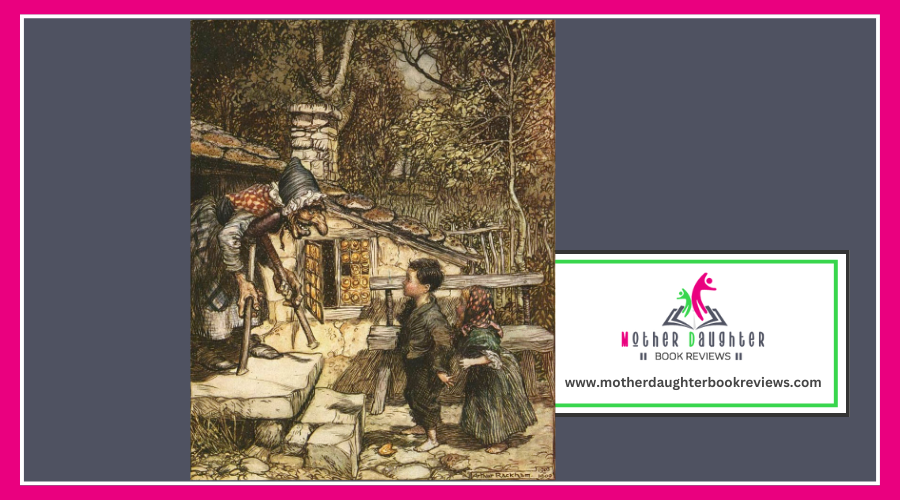Folk Wisdom in The Tale of the Fisherman and the Fish

In "The Tale of the Fisherman and the Fish," you learn about the virtues of kindness, humility, and gratitude. When the humble fisherman releases the magical fish, his act of kindness sets a significant example. The story contrasts his humility with his wife's growing greed, showing how insatiable desires lead to misery and loss. The classic tale emphasizes that small acts of kindness can ripple into greater positive impacts, teaching timeless lessons about contentment and generosity.
The Tale's Central Theme
At the heart of "The Tale of the Fisherman and the Fish," the central theme revolves around the consequences of greed and the value of kindness. You see, the story begins with a humble fisherman who catches a magical fish that promises to grant any wish if he lets it go. Instead of asking for anything extravagant, the fisherman initially shows kindness by setting the fish free without making any demands. However, his wife's insatiable greed leads her to push for increasingly grandiose wishes.
As the fisherman relays his wife's escalating demands to the fish, you notice how each wish becomes more outrageous and selfish. The fisherman's initial act of kindness contrasts sharply with his wife's relentless greed. Ultimately, her insatiable desire for power and wealth brings about her downfall. The magical fish, weary of the constant demands, ultimately revokes all the granted wishes, leaving the fisherman and his wife back where they started—with nothing.
This tale teaches you a valuable lesson: unchecked greed can destroy what you already have. It emphasizes the importance of contentment and warns against the destructive nature of always wanting more.
Understanding Compassion
The tale's exploration of greed naturally leads us to contemplate its counterpart: compassion. When you think about the fisherman, he initially demonstrates a compassionate heart by releasing the enchanted fish back into the sea. This act of kindness sets the stage for understanding how compassion can impact your life and the lives of others.
Compassion isn't just about feeling pity; it's about taking action to alleviate suffering. When you show compassion, you're actively engaging with the needs and emotions of others. It's a powerful reminder that kindness can ripple outwards, affecting more than just the immediate situation.
In "The Tale of the Fisherman and the Fish," the fisherman's wife lacks compassion, driving the tale towards its moral lessons. Her insatiable greed contrasts sharply with the fisherman's initial act of kindness, highlighting how compassion can be overshadowed by selfish desires.
Think about how you can incorporate compassion into your daily interactions. Small acts, like listening to someone's troubles or offering a helping hand, can make a significant difference. By being compassionate, you not only enrich your own life but also contribute to creating a more empathetic and understanding world.
The Power of Gratitude
Gratitude, a cornerstone of emotional well-being, often goes unnoticed in our fast-paced lives. "The Tale of the Fisherman and the Fish" highlights the significance of appreciating what we have. When you express gratitude, you cultivate a positive outlook and strengthen relationships. This timeless story teaches you several key lessons about the power of gratitude:
- Foster Contentment: The fisherman's wife constantly demands more, never satisfied with what she receives. This lack of gratitude leads to her downfall. By appreciating what you have, you can find joy and contentment in the present moment.
- Build Stronger Bonds: Gratitude improves relationships. When you thank others, you show them they're valued, which strengthens your bond. The fisherman and his wife could have had a stronger relationship if they had appreciated each other and the fish's initial gifts.
- Promote Resilience: Life's challenges become more manageable when you focus on the positives. Gratitude helps you bounce back from setbacks. The fisherman's wife could have faced her difficulties more gracefully if she had practiced gratitude.
Incorporating gratitude into your daily routine can transform your life, fostering a sense of happiness and fulfillment.
Humility Versus Greed
When you examine "The Tale of the Fisherman and the Fish," the stark contrast between humility and greed becomes evident. You see, the humble fisherman asks for nothing more than his daily needs. He catches a magical fish and, despite the fish's offer to grant a wish in exchange for its freedom, the fisherman initially asks for nothing. This illustrates his contentment with what he has, a key element of humility.
Contrast this with his wife's insatiable greed. She urges the fisherman to make increasingly extravagant demands: a new trough, a grand house, nobility, and even kingship. Her desires grow unchecked, showing how greed can spiral out of control. Each new wish represents a departure from humility and a step towards arrogance and dissatisfaction.
Greed blinds you to the value of what you already possess. The wife's relentless pursuit of more ultimately leads to her downfall, as the fish revokes all the granted wishes, leaving her with nothing. This powerful narrative teaches you that humility fosters contentment and peace, while greed only breeds misery and loss. By focusing on humility, you can find true happiness and avoid the pitfalls of endless desire.
Lessons From the Fisherman
While the tale clearly contrasts humility and greed, it also offers valuable lessons through the fisherman's actions and choices. You see, the fisherman embodies patience and contentment, crucial virtues in a world often obsessed with material gain. His initial willingness to release the golden fish without demanding anything in return showcases his innate kindness and respect for life.
Here are three key lessons from the fisherman:
- Patience Pays Off: The fisherman waits for the right moment to cast his net, symbolizing that good things come to those who wait. This patience contrasts sharply with his wife's incessant demands.
- Contentment is Key: Despite living in a modest hut, the fisherman is content with his life. His satisfaction with what he has serves as a reminder that happiness doesn't come from material wealth but from appreciating what you already possess.
- Respect for Nature: By releasing the fish, the fisherman shows a deep respect for nature. This action underscores the importance of treating all living beings with kindness and compassion.
Implementing these lessons in your life can lead to greater fulfillment and a more harmonious existence.
The Fisherman's Wife's Role
The fisherman's wife serves as a stark contrast to her husband's virtues, embodying greed and insatiable desire. While the fisherman is content with his simple life, you see his wife constantly pushing for more. Her demands escalate from a new trough, to a grand house, and eventually to ruling the seas. This relentless ambition highlights her dissatisfaction and greed.
You notice her role exhibits how unchecked desires can lead to one's downfall. Each time the fisherman returns to the fish with her new wish, the sea grows increasingly turbulent, symbolizing the chaos her greed brings. Her inability to appreciate what she already has blinds her to the consequences of her actions.
Her character teaches you a valuable lesson: material wealth and power can't bring true happiness. Through her excessive demands, she loses everything, returning to the original humble state. This stark return to poverty serves as a powerful reminder that gratitude and contentment are more valuable than any material possession. The fisherman's wife's role exemplifies the destructive nature of greed and the importance of appreciating what you have in life.
Wrapping Up
How often do we find ourselves yearning for more, despite already having enough to live comfortably? The timeless tale of the fisherman and the fish offers a valuable lesson that applies to modern life. You can draw wisdom from this story to cultivate contentment and kindness in your daily routine. Here's how:
- Practice Gratitude: Start each day by acknowledging the good things you already have. It's easy to take them for granted, but listing them can shift your focus from what's lacking to what's abundant.
- Set Realistic Goals: Ambition is significant, but it's essential to balance it with realism. Like the fisherman's wife, don't let endless desires drive you. Set achievable goals that align with your values.
- Be Generous: Acts of kindness can transform your perspective and relationships. Generosity doesn't have to be grand; small, thoughtful actions can have a considerable impact.
Applying these lessons helps you avoid the pitfalls of constant dissatisfaction and encourages a more fulfilling, compassionate life. Remember, our modern world often equates more with better, but true happiness comes from appreciating what you already have.




